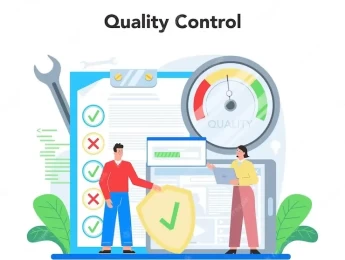Making a profit and remaining competitive as an employer can often be challenging. It’s a fine line between doing what’s best for your customers and your business to bring in the money and paying out money for effective recruitment, training and support for your workforce to lower attrition.
Many companies make the mistake of skimping on wages and training costs to widen profit margins and will work with the most basic systems to ensure cheaper technology invoices.
However, operational budgets are a delicate topic and need careful analysis to determine the best way forward through automation and recruitment to ensure performance is maintained to the highest standard. Accurate planning, management information reporting and customer feedback can help manage your budget effectively, leaving you in the green, putting the necessary processes and systems in place and prioritising what’s needed over what’s nice to have.
Upon completion of this course, participants will be able to:
- Understand where budget cuts can be made without affecting service performance.
- Conduct a cost-benefit analysis of new services and processes.
- Work out your FTE requirement to save on recruitment costs.
- Develop a forward-thinking business plan, including a SWOT analysis to create cost-saving opportunities.
- Explore cost-saving activities.
- Create innovative schemes for controlling costs.
- Understand where money is being drained and plan for change.
- Use performance management and KPIs to control staffing budgets.
- Develop key recovery schemes when budget plans aren’t met.
This course is aimed at people who manage a department budget, own their own business, or are responsible for business profits and losses. It will help provide a deeper understanding of financial models to move businesses forward into profit. It would be particularly beneficial for:
- Managing Directors
- Business Owners
- Financial Officers
- HR Personnel
- Operations Managers
- Developing Senior Managers
- Planning Managers
- Strategic Planners
This course will provide insight into accurate budget planning tools, provide examples via real-life case studies and allow you to discuss current budgeting concerns with other senior managers in similar roles.
Using a budget planning framework, you can create a structure for monitoring and managing your own budgets and select the best tools and strategic planning processes to suit your management style.
Day 5 of each course is reserved for a Q&A session, which may occur off-site. For 10-day courses, this also applies to day 10
Section 1: Why Budget Planning Is Important
- Why making a profit isn’t just about cutting costs.
- The benefits of investing in the right areas.
- The budgeting process overview.
- Why budgeting is your responsibility.
Section 2: Staff Planning And Resource Management For Variance
- Monitoring adherence and KPIs to maintain service levels.
- Identifying opportunities for shrinkage.
- Recruiting over rather than under to plan for variance.
- Effective training resources to provide a good service at the lowest cost.
- Select the right wage level for your employees to reduce attrition.
Section 3: Effective Scorecards and Dashboards
- How targets and budgeting align.
- Six Sigma budgeting models.
- Setting a budget strategy to align with your goals.
- Performance management based on dashboards.
Section 4: Key Budgeting Models
- Variable vs. fixed costs.
- Indirect and direct cost exercises.
- Over budgeting vs. underbudgeting.
- Cost allocation models.
Section 5: Strategic Planning And Financial Assessment
- Understanding margins.
- Identifying key areas of waste and planning for removal.
- Recovering from budget cuts and tightening processes.
- Creating a cost-benefit analysis.
Section 6: Systems Planning And Automation
- People vs. machines. Can automation save your headcount?
- Paying extra now for gain later.
- Replicating processes using system development.
- What does your customer need? And do you really need more staff resources to provide it?
Section 7: Futureproofing And Analysing Change
- Reviewing future plans and reducing current costs.
- Developing strategic aims compatible with your budget.
- Lessons learned – understanding your losses.
- How smaller monthly costs add up.
- What can you cut out? A roadmap for cost-cutting.
Upon successful completion of this training course, delegates will be awarded a Holistique Training Certificate of Completion. For those who attend and complete the online training course, a Holistique Training e-Certificate will be provided.
Holistique Training Certificates are accredited by the British Assessment Council (BAC) and The CPD Certification Service (CPD), and are certified under ISO 9001, ISO 21001, and ISO 29993 standards.
CPD credits for this course are granted by our Certificates and will be reflected on the Holistique Training Certificate of Completion. In accordance with the standards of The CPD Certification Service, one CPD credit is awarded per hour of course attendance. A maximum of 50 CPD credits can be claimed for any single course we currently offer.
- Course Code PF1-105
- Course Format Classroom, Online,
- Duration 5 days














